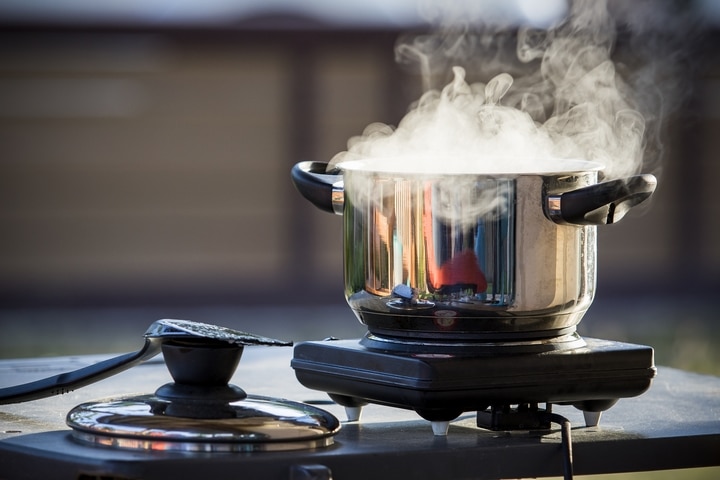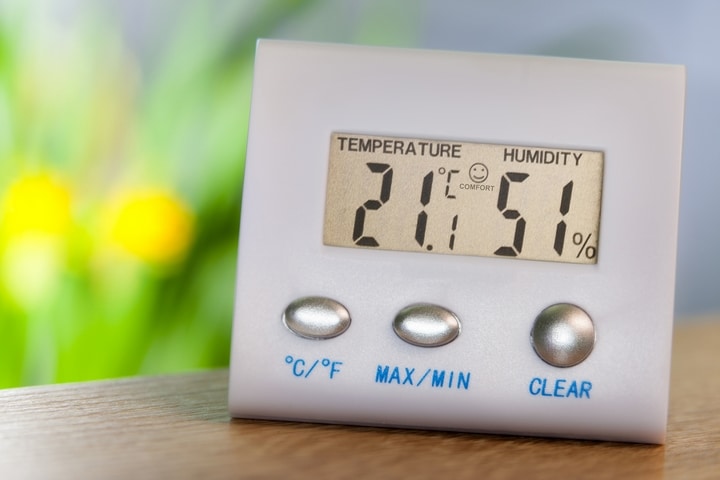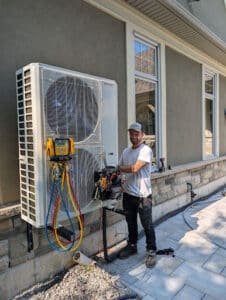A lot of people complain when the air feels too humid. However, having some humidity in your home could be good for you. Humidity keeps your skin moisturized and balances the temperatures in the house. On the other hand, excessive humidity presents its own set of problems and challenges. If there is too much humidity in your house, the air might feel very uncomfortable.
It can be hard to strike a good balance, especially if you live in a place that is known for having higher levels of humidity. Fortunately, there are products and services available for assessing and managing your indoor air quality. It is possible to rein in the high levels of moisture in your home, thereby making sure that your house remains cool and comfortable during the summer months.
The key is to find the ideal home humidity levels that work best for your living quarters. Here are the seven best ways for making sure humidity doesn’t take over your house:
1. Turn on the air conditioner

Sometimes, the simplest solutions have been staring at us right in the face all along. If you need some quick, easy relief from the humidity in your home, you can try turning on the air conditioner. Powering up the AC is a quick solution that can have near instantaneous results. Your air conditioner will work hard to flood your home with cold, brisk air while circulating the warmer, humid air.
2. Turn on the dehumidifier

Get ready, because a dehumidifier is going to become your new best friend. As the name implies, a dehumidifier is another great way to cool down and clear out the humidity your home. Simply turn it on and let the dehumidifier work its magic.
There are many different models of dehumidifiers on the market. They range from small, portable dehumidifiers to large, central ones that take care of your whole house. No two homes (or people) are the same, which means that your dehumidifying needs will also vary. Take the time to research different styles and capabilities to decide which dehumidifier is best for you.
3. Ventilate properly throughout your home

A huge factor in unhealthy humidity build-up is attributed to poor ventilation. Not all houses come with air vents and ducts. If your house lacks the necessary tools to dehumidify your place, you need to have these vents installed.
It’s best when you have plenty of vents scattered throughout your whole house. However, if you can only limited space to have the vents installed, always go for the kitchen and bathroom. These are the two areas where steam and humidity are likely to build up, especially without proper vents.
4. Keep an eye on your cooking

Creating delicious stir fries and cooking steaks is a great way to spend some quality time in the kitchen. But what happens to all that steam coming off the food? Usually, it’ll go into your home, causing humidity levels to rise and make sitting down to eat not as enjoyable.
Next time you cook something, try covering the pots and pans with lids. Also, switch on the air vents above the stove (if you have them) to help the steam dissipate instead of circulating through the house.
5. Change up your shower habits

An obvious culprit of high humidity is long, hot showers that generate a ton of steam. These hot showers leave the bathroom moist and humid, creating an atmosphere that could travel to the rest of the house, making the overall humidity worse.
During summer, why not try taking cool or cold showers? This will help in several ways: humidity will be lessened, you’ll feel rejuvenated, and you might spend less time in the shower (which saves you money on the water bill). It’s a triple win!
6. Switch things up with your clothes dryer

Your clothes dryer could be a problem when it comes to keeping your home in the low humidity zone. Heated drying plus wet clothes is basically a recipe for humidity, but there are a couple simple solutions. First, check to see if the air from your clothes dryer is being sent outside via an air vent. If not, you could probably get a handyman to install a new vent and get your dryer hooked up to it.
Otherwise, you could purchase a clothesline and hang your clothes outside the old-fashioned way. The laundry will come off the line smelling like a sunny meadow and that can be well worth the little extra work.
7. Invest in some humidity-sucking plants and ferns

Did you know there are house plants that will absorb the humidity in the air? It’s true! The sword fern, peace lily, and common ivy are just a few of the plants that will help you combat against excess moisture in your home. Go down to your local plant nursery and ask for recommendations.



